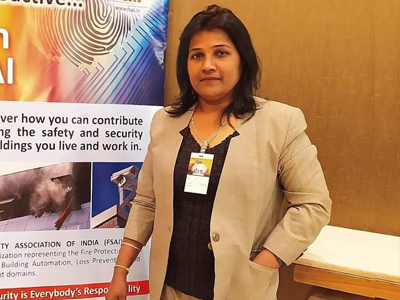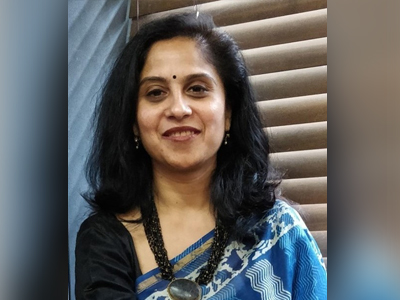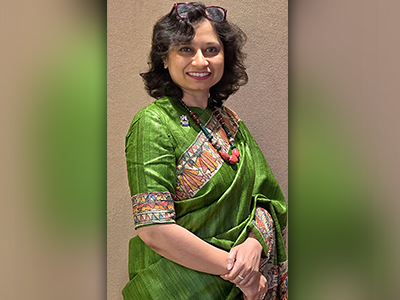Artificial Intelligence-The Game Changer

Dr. (Prof) Vikram Singh, I.P.S. (retd), Former Director General of Police, Uttar Pradesh, Pro Chancellor, Noida International University.
Brief Profile
Former Officer of Indian Police Service 1974 batch; Former Director General of Police - Uttar Pradesh (The largest Police Force in the World consisting of 1,90000 ,personnel). One of the most highly decorated police officers in the country, who has relentlessly fought against national and international terrorist outfits and organized crime syndicates. Has directly worked for the modernization and induction of state of the art technology and universal best practices to make police effective and people friendly. Rated as a star trainer and speaker on issues related to security, man-management, crisis resolution team building, values ethics. Completed M. Sc. from Allahabad University in 1972 and Ph. D. (Ecology) from Kumaon University in 1990. Currently working with Noida International University as Pro Chancellor. Guest speaker at several National and International institutions.
Awards and Accolades
• President’s Police Medal for Gallantry - 1986
• Bar to President’s Police Medal for Gallantry - 1987
• President’s Police Medal for Gallantry - 1988
• Bar to President’s Police Medal for Gallantry - 1989
• President’s Police Medal for Long and Meritorious Service -1990
• President’s Police Medal for Distinguished Service - 1996
• Kathin Seva Medal – 2001
• Bar to Kathin Seva Medal - 2002
• Limca Book Of Records (2014) mentions him as The most Highly Decorated Police Officer
Artificial intelligence has very exciting possibilities and it has indeed started an I.T. revolution! This technology has a history of many years, but the real potential and serious work application started in the last decade. The recent advances in machine learning, AI, robotics, and big data analysis have given rise to path breaking possibilities, in almost all critical areas like the government sector, defence organizations, policing, fire department and the private sector operations. The current global value of this industry was estimated around 39.22 billion dollars in 2018.
Saudi Arabia plans to invest about 500 billion dollars, China has a specific road map, clear cut strategy and objectives of investing 150 billion dollars to pursue researchers in artificial intelligence. UAE also has extremely ambitious plans and its market is expected to be around 50 Billion Dollars by 2025. India has the ambition of being a leading power in the arena, not only locally, but a world leader. In comparison India has allocated 477 million dollars for its digital India program with the aim to promote artificial intelligence machine learning 3D printing and other Technologies. The well known Chinese, businessman, Kai Fu Lee, believes that what oil is to Saudi Arabia, data is to China! He goes on to say, "If data were petroleum, in the artificial intelligence era, then China would be Saudi Arabia" This sums up the true potential and possibilities of the AI age! It has also been predicted that China will be on equal footing with the US in the next five years. There are very interesting developments in India this week. The first innovation is from Kerala, where India's first Robocop was inducted and given the rank of a sub inspector. It has initially been assigned very basic functions, but it is bound to initiate a technological revolution in the conservative police and paramilitary organizations. Many routine, standard and data related tasks would soon be assigned to this technology. Compare this with Dubai, that plans robots to make up to 25% of its police force by 2030!
The second welcome news comes from Delhi Police, who have introduced a state of the art, mobile communication and command centre, which is a highly functional, well equipped mobile control room with futuristic technologies that is at par with the best in the world. It functions not only as a control room, but as a multifaceted central command centre to cater to emergencies of law and order, terror attack situations and emergency deployment during V.V.I.P. movements, public gatherings and important events like Independence Day, Republic Day, traffic and fire management situations. Obviously, this is the state of the art technology that has been incorporated and inducted to cater to the demands of twenty first century policing. This would require expert and professional management, constant upgradation and innovations to incorporate not only the latest developments in artificial intelligence but also in robotics, big data analysis and other allied technologies.
There are immense possibilities in the application of Artificial Intelligence and machine learning. This is just the beginning, the real exciting possibilities can be seen in their application to drone technology, smart fencing, armed intelligent robotics, real time analysis of crime data, face recognition, smart and analytical CCTC applications. These are just a few game changing possibilities, that will render most of the current systems, procedures and technologies obsolete .Experts say that these technologies will have far reaching consequences. The likes of Vijay Mallya, Moin Qureshi, Nirav Modi, Choksi, etc. would not have been able to escape, only if these artificial intelligence equipped, face recognition big data analytics systems were operating seamlessly. Specific identifications apart, micro analysis like gait specifics, physiognomic analysis that would invariably lead to proper identification of accused and suspects. Not only this, the police station records could be digitised and post digitisation the field work and other crime criminal data could be subjected to fine tuning. What is now being done manually, could be handled by AI and allied technologies as is proposed in China. This amazing innovation would be a nothing short of a revolution in policing, crime control, law and order, crowd management, etc.
However, this technology requires extensive investment and deployment of top grade Human Resource to run and ensure its smooth functioning and upgradation. Sadly, another report that appear in Times of India on 19th March,2019, says that only 3% of our engineers have AI skills and low industry ready capabilities. This is an alarming state of affairs and a cause of serious concern. If the adequate workforce is not available, how do we rise to face the international challenge from emerging AI giants? We have to be world class plus to encounter stiff world class competition successfully. The Government, Education Ministry and the private sector need to pool all their resources to come out with fool proof actionable solutions so that India is able to produce world class technological work force which can propel the nation to the top in this highly competitive field where they are competing with the best brains in the world.





.png)








.gif)